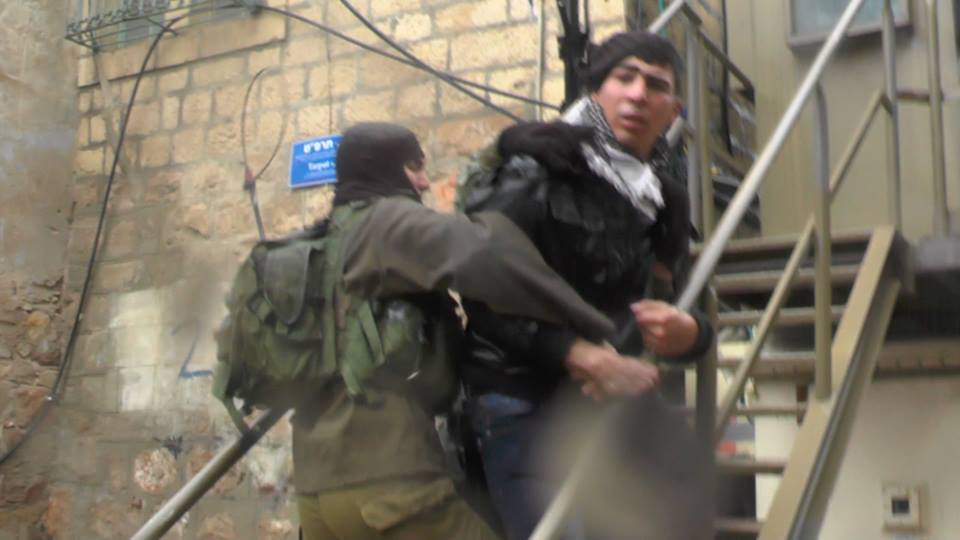Category: Hebron
-
VIDEO: Non-violent protest met with tear gas and stun grenades
29th November 2014 | International Solidarity Movement, Khalil team | Hebron, Occupied Palestine Today in al-Khalil (Hebron) families gathered to stage a peaceful demonstration protesting the continuing closure of the Shuhada checkpoint. The rally consisted of approximately 50 Palestinians, of all ages. The protesters met outside of the closed checkpoint at 1 pm, armed with nothing…
-
20-year-old Palestinian activist violently detained and arrested at Hebron checkpoint
28th November 2014 | International Solidarity Movement, Khalil team | Hebron, Occupied Palestine Israeli forces violently detained and arrested twenty-year-old Palestinian activist Imad Altrash at approximately two o’clock yesterday in al-Khalil (Hebron). Soldiers accused him of insulting and yelling at them at Shuhada checkpoint. No soldiers claimed that Imad threatened them or behaved violently. On…
-
Israeli military beat and detain young men in Hebron
23rd November 2014 | International Solidarity Movement, Khalil | Hebron, Occupied Palestine Yesterday evening Israeli forces beat and detained young Palestinians on Tel Rumeida hill in al-Khalil (Hebron). A twenty-two-year-old man was taken from the scene by an ambulance. Four others between the ages of eighteen and twenty-four were handcuffed and detained in a military…



